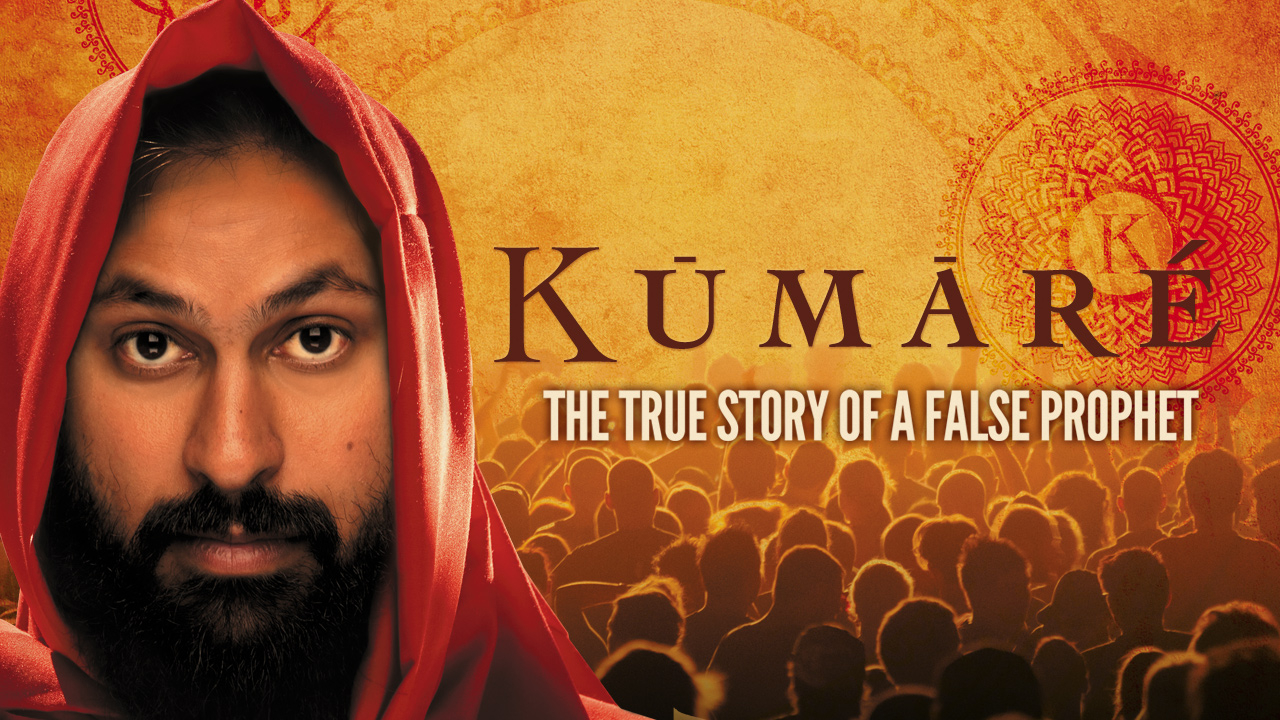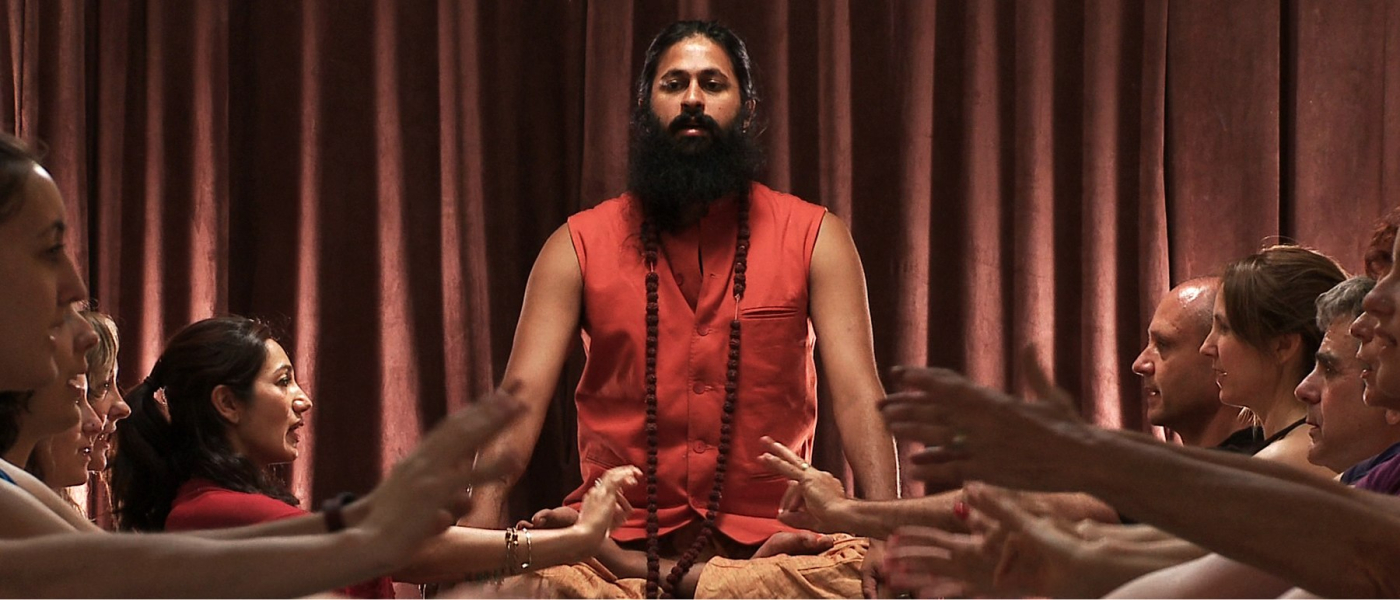How to fool a believer?

Yoga and meditation have both become increasingly popular in the Western world, especially among people struggling with stress or coping with other personal problems. Vikram Gandhi is an American filmmaker who met a lot of religious leaders who claimed to have all the answers. But he was sceptic. Were these guru's real? Were some of them holier than others? His answer: they were all full of it. American andIndian guru's alike.
In order to demonstrate this point, and to show you don't need a guru to find happiness, Vikram decides to pretend to be an Indian guru, gather a following and then reveal his real identity to them. He grows a beard and a bun, makes up fake rituals and symbols, dresses up like a spiritual leader and carries around a rod. He makes up his own yoga poses and meditation sessions, succeeds, and calls himself Sri Kumaré, a made up name. In the documentary Kumaré we see how he gains followers and builds a relation with them. The closer he and his followers become, the more they reveal their deepest secrets to him, and the harder it becomes for Vikram to reveal the truth.

There's a true or ideal self and there's the person you are showing to the outside world. You have to bring these two together, that's the lesson Kumaré preaches. Kumarés followers are inspired by him and at some point they even start to almost worship him, even though he keeps telling them he is just like them. They willingly engage in bogus yogamoves and medition practices. For an outsider watching the film, though, it is hard to imagine yourself accepting Kumarés claims. While watching you might wonder why these people are so willing to believe everything Kumaré says. He actually tells them he is fake, 'the biggest faker there is', but his followers only see a deep spiritual message behind this quote. Do they actually care about what's real, about what the truth is?
During the Q&:A, psychologist dr. Madelijn Strick emphasizes that it is healthy for us to have believes that aren't true. Sometimes it's more useful to believe what everyone else believes, than what's true. Moreover, it's better to have a positive self-image - about your presentation skills for instance - than to be really honest to yourself. We all have this kind of positive illusions and they are important, because they keep you going and let you remain happy.
However, at a certain point, Vikram is not only fooling his followers anymore. After sleeping, dressing and talking like a guru, even Vikram himself starts to believe in his own methods. Strick points out the power of role play. It's used in therapy, where for example shy people have to pretend to be a bold person. In order to play that role they have to accommodate the specific characteristic traits of a bold person. They have to change their attitude for the therapy, which can lead to a permanent change in their own personality.

At the end of the documentary, Kumaré tries to encourage his followers to find their own guru inside themselves. ''Set up goals and create your own rules'', is what he says. And it is this that makes his teaching so effective, according to Strick. Setting your own goals is way more powerfull than having someone else doing that for you.
After giving his followers this last lesson, Kumaré shaves of his beard, puts on normal clothes and reveals his true identity. His followers react differently. A few get up, walk out of the door and never want to speak to him again. The majority though, hugs him and don't care if he is a real guru or not. They were looking for something and whether he is real or not, they found it in Kumaré. And precisely this answers his question: Can people pull as much energy and happiness out of a fake religion as a real one? Yes, they can. It seems that the truth isn't always the most important value.







